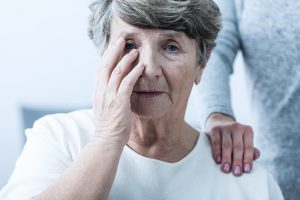
In a 10-year study conducted by researchers from the University of East Anglia (UEA), University College London (UCL), London Metropolitan University, and the University of Nottingham, negative social support is linked with an increased risk of dementia onset. The researchers came to this conclusion by analyzing a decade’s worth of data from 10,055 participants who were dementia-free at the start of the study in 2002–2003. To assess each patient’s incidence of dementia, interviews were scheduled every two years during 2004–2012, with additional information provided through self-reports by participants or given by nominated informants. Positive and negative experiences of social support were calculated from questionnaires that were part of the study, which used a scale that ranged from 1–4, with higher values indicating more positive or negative support.
Positive support is characterized as having a reliable, approachable, and understanding relationship with a spouse or partner, children, or other immediate family members. Negative support, on the other hand, is characterized by experiences of critical, unreliable, and annoying behaviors from spouses or partners, children, or other immediate family members.
This scale system was useful, as a one point increase in positive social support score led to up to a 17 percent reduction in the instantaneous risk of developing dementia. Negative effects were shown to have a stronger correlation, however, with an increase in one point in the negative support category resulting in a 31 percent increase in risk for dementia. Of all the participants included in the study, 3.4 percent were seen to develop some form of dementia during the study period.
“It is well known that having a rich network of close relationships, including being married and having adult children, is related to a reduced risk of cognitive decline and developing dementia. However, a relationship or social connection that does not work well can be a source of intense interpersonal stress, which may have a negative impact on both physical and mental health of older adults. It is not only the quantity of social connections, but the quality of those connections may be an important factor affecting older people’s cognitive health,” said Dr. Mizanur Khondoker a senior lecturer in medical statistics at UEA’s Norwich Medical School.
The researchers find that the elderly are becoming more isolated and lonely, which can lead to negative consequences for brain health. They hope that their study will help stress the importance of social relationships for cognitive health in old age, but admit that more research is needed.
Related: Age-related memory loss vs. dementia